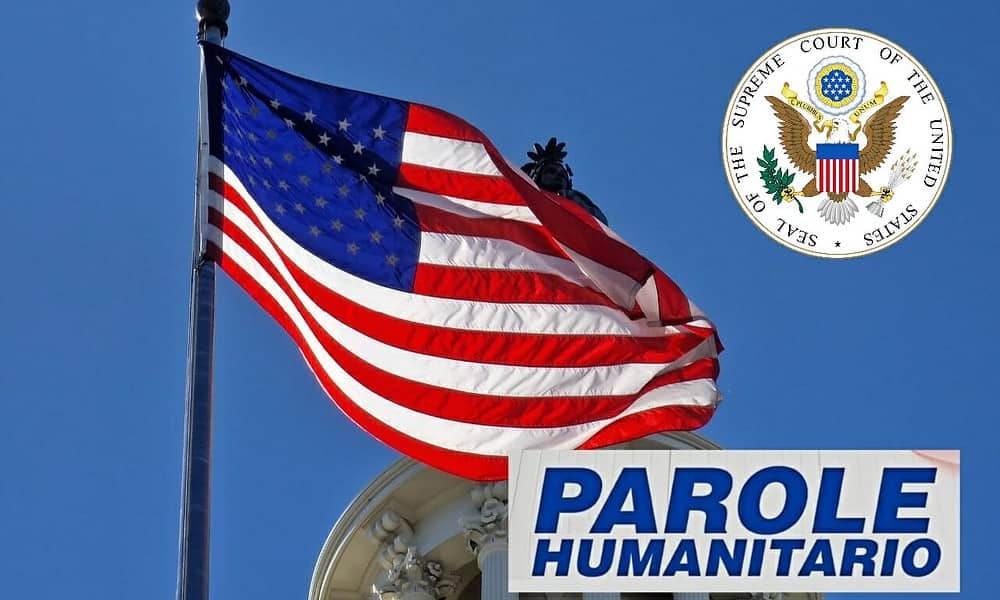Nearly half of the 50 states that make up the United States oppose the humanitarian parole that Biden implemented to welcome citizens of Cuba, Venezuela, Haiti and Nicaragua. This week the initiative will be brought to trial, after a lawsuit classifies it as illegal.
Parole allows up to 360,000 people to enter the United States each year from Cuba, Venezuela, Haiti and Nicaragua. According to the democratic government, it is an effective resource for generating legal, orderly and humane ways to migrate.
They further explained that they were forced to take such measures due to the lack of congressional action to reform the immigration system in the United States.
They represent, in fact, as an achievement, the significant reduction in border crossings for illegal immigrants from those four countries.
Revoking Parole on Humane Grounds: A Republican Case
However, there are 21 states, generally governed by the Republican Party, that seek to overturn parole on humanitarian grounds. The appeal questions the legality of the initiative put forth by Democrats, and it will be formally unveiled in a Texas court starting Thursday.
Republican prosecutors allege that the Biden administration usurps power from the US Congress and has overstepped the scope of “paroles” that should only be used on a discretionary basis for urgent humanitarian reasons or because it generates a public good.
Humanitarian parole achievements
The Biden administration initially created the program for Venezuelans in October 2022. Then, based on positive results, it was extended to Cubans, Haitians and Nicaraguans in January of this year.
Parole applicants undergo extensive background checks. Likewise, they must have a financial sponsor in the United States who is responsible for their expenses.
If approved, those interested would fly the plane to the United States rather than risk crossing the southern border with Mexico. From this moment they can stay in the United States for two years and obtain a work permit.
In essence, almost anyone can sponsor an immigrant, as long as they complete the required paperwork. In fact, many people today sponsor family members who have no other way to legally enter the United States.
However, there are several pointers. Some argue that parole primarily benefits wealthier, more connected immigrants. Others say that this initiative favors black labor or that immigrants are exploited for labour.

“Music buff. Social media lover. Web specialist. Analyst. Organizer. Travel trailblazer.”

:quality(85)/cloudfront-us-east-1.images.arcpublishing.com/infobae/TEQF6EONZRFGLLLDIDD4L2O4EE.jpg)

:quality(75)/cloudfront-us-east-1.images.arcpublishing.com/elcomercio/XU32LRAEZFDDPNVHLFU3CKVBYY.jpg)



More Stories
Sheinbaum, Galvez, Mainz campaign wrap-up, news and more
Sheinbaum and Mainz’s CDMX campaign wraps up: Road Alternatives and Street Closures
Ortega attacks Humberto Ortega and declares him a “traitor to the country”